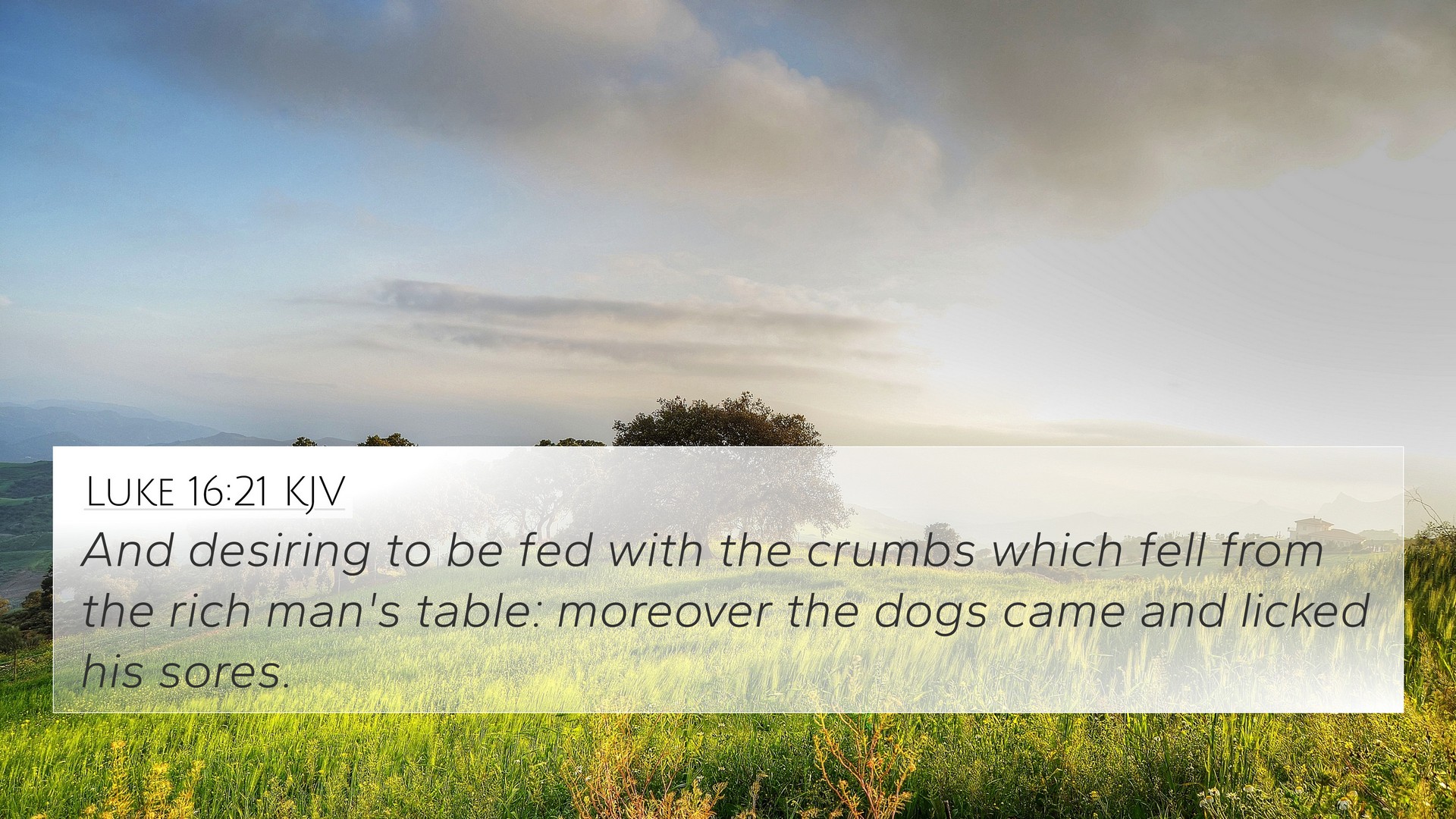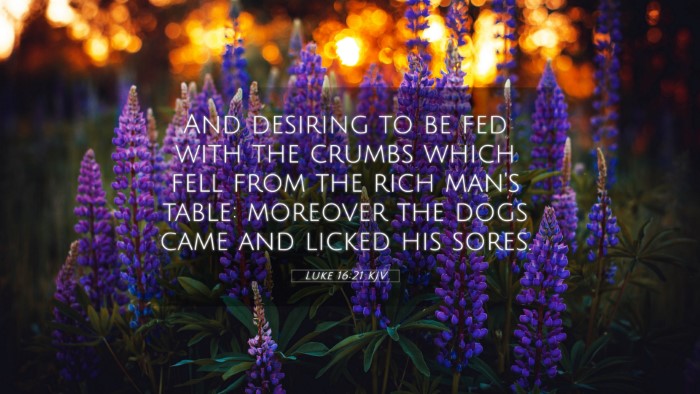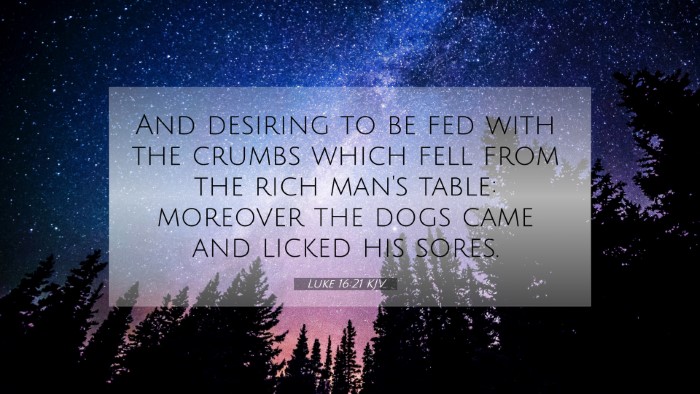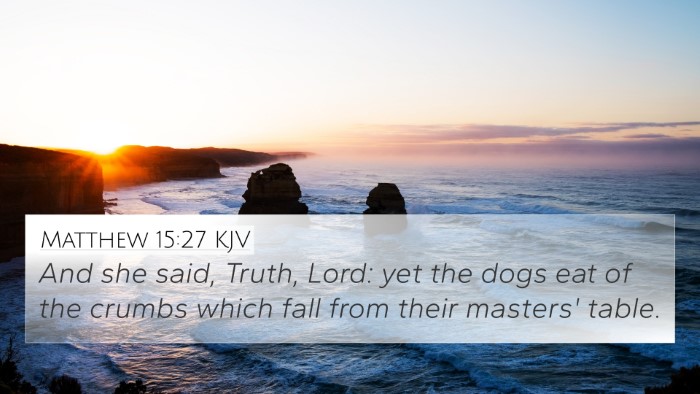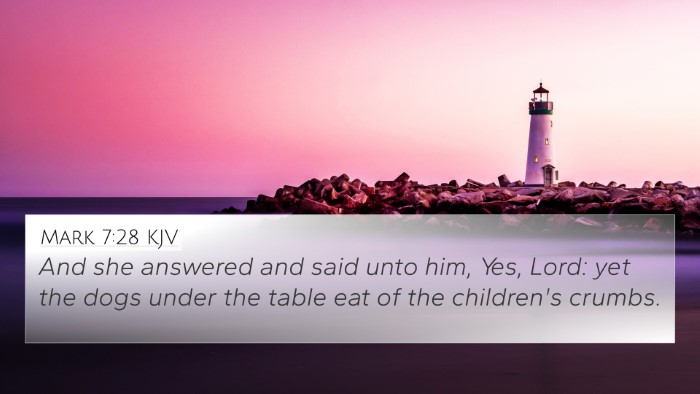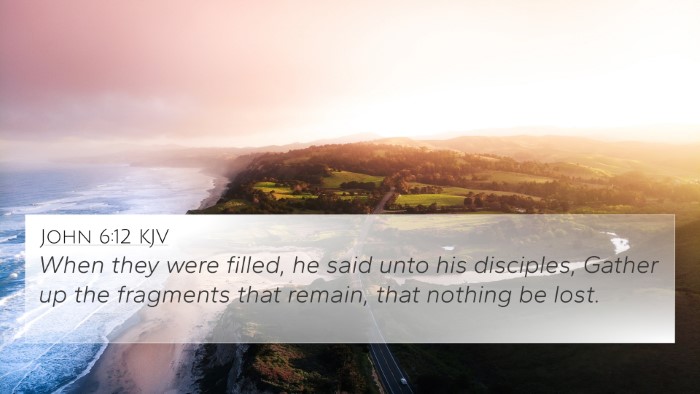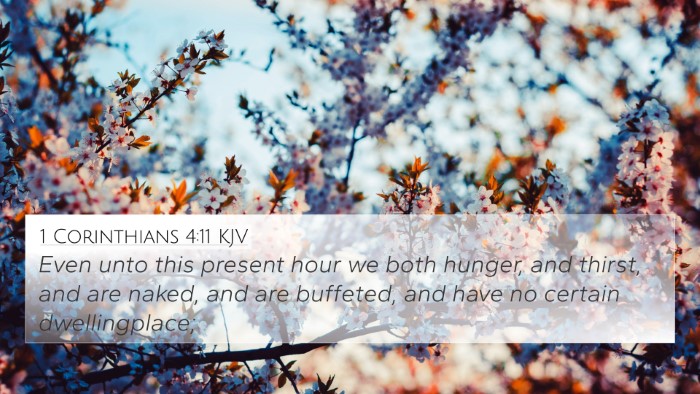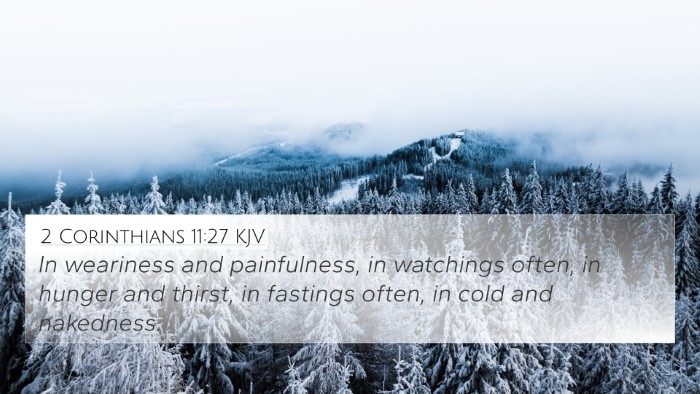Understanding Luke 16:21
Luke 16:21 states: "And desiring to be fed with the crumbs which fell from the rich man's table: moreover the dogs came and licked his sores." This verse is a poignant depiction of the plight of Lazarus, a beggar, in the context of a parable illustrating the contrasts between wealth and poverty, as well as their eternal consequences.
Summary of Meaning
The verse depicts Lazarus's desperate state, longing for even the smallest remnants of food, which emphasizes his extreme poverty. Simultaneously, it draws a vivid contrast with the opulence of the rich man, symbolizing the societal divide and the indifference of those with wealth towards the suffering of the poor.
Insights from Public Domain Commentaries
-
Matthew Henry: Henry emphasizes the stark contrast between the luxurious lifestyle of the rich man and Lazarus's miserable state. He notes that despite the rich man’s wealth, he failed to show compassion towards those in need. This parable serves as a warning about the moral responsibilities that accompany wealth.
-
Albert Barnes: Barnes elaborates on the implications of craving the "crumbs" as a metaphor for spiritual longing. He suggests that the dogs licking Lazarus's sores symbolizes how society often neglects the needy, further highlighting their suffering and isolation.
-
Adam Clarke: Clarke comments on the allegorical nature of this story, interpreting Lazarus’s situation as a broader commentary on the attitudes of society toward the poor. He sees the rich man’s negligence as a representation of the love of money that blinds people to the suffering of others.
Bible Cross-References
This verse has several connections to other scriptures that further illuminate its meaning:
- Psalms 37:21: "The wicked borrows and does not pay back, but the righteous is gracious and gives." This verse complements the theme of moral responsibility towards the less fortunate.
- Proverbs 21:13: "Whoever closes his ear to the cry of the poor will himself call out and not be answered." This highlights the consequences of ignoring the needy.
- Luke 14:13-14: "But when you give a feast, invite the poor, the crippled, the lame, the blind, and you will be blessed..." This teaching reinforces the importance of caring for the marginalized.
- Matthew 25:35-40: "For I was hungry and you gave me food, I was thirsty and you gave me drink..." This passage relates directly to the moral implications of indifference to the suffering of others.
- James 2:15-16: "If a brother or sister is poorly clothed and lacking in daily food, and one of you says to them, 'Go in peace, be warmed and filled,' without giving them the things needed for the body..." This emphasizes active compassion.
- Mark 10:25: "It is easier for a camel to go through the eye of a needle than for a rich person to enter the kingdom of God." This echoes the parable's warning against wealth's distractions from spiritual matters.
- Revelation 3:17: "For you say, I am rich, I have prospered, and I need nothing, not realizing that you are wretched, pitiable, poor, blind, and naked." This ties the themes of spiritual blindness and material wealth together.
- Matthew 6:24: "No one can serve two masters... You cannot serve God and money." This highlights the choice between material wealth and spiritual devotion.
- Isaiah 58:7: "Is it not to share your bread with the hungry and bring the homeless poor into your house?" This directly advocates for the care for the impoverished.
- Galatians 2:10: "Only, they asked us to remember the poor, the very thing I was eager to do." This underscores the apostolic mission to support and remember the needy.
Thematic Connections
The themes illustrated in this verse offer a rich terrain for study and reflection. It evokes discussions on:
- Wealth and Responsibility: What moral obligations does wealth impose?
- Poverty and Compassion: How should one respond to the suffering of others?
- Eternal Consequences: What does this parable suggest about the afterlife for the rich versus the poor?
Tools for Bible Cross-Referencing
Utilizing various resources can enhance one's understanding of scriptural connections. The following methods and tools provide guidance:
- Bible Concordance: A helpful resource for finding relevant verses.
- Bible Cross-Reference Guide: Tools specifically designed for thematic and topical connections.
- Cross-Reference Bible Study: Engaging in this method allows for a deeper comprehension of scripture.
- How to Use Bible Cross-References: A practical approach for individuals seeking to enrich their scriptural insights.
- Bible Reference Resources: Comprehensive materials for readers keen on exploring biblical themes and discussions.
Conclusion
In analyzing Luke 16:21, one finds that it offers profound reflections on human condition, wealth, and spiritual vigilance. By cross-referencing related verses, readers can grasp the full implications of this poignant parable and apply its teachings to modern contexts.
